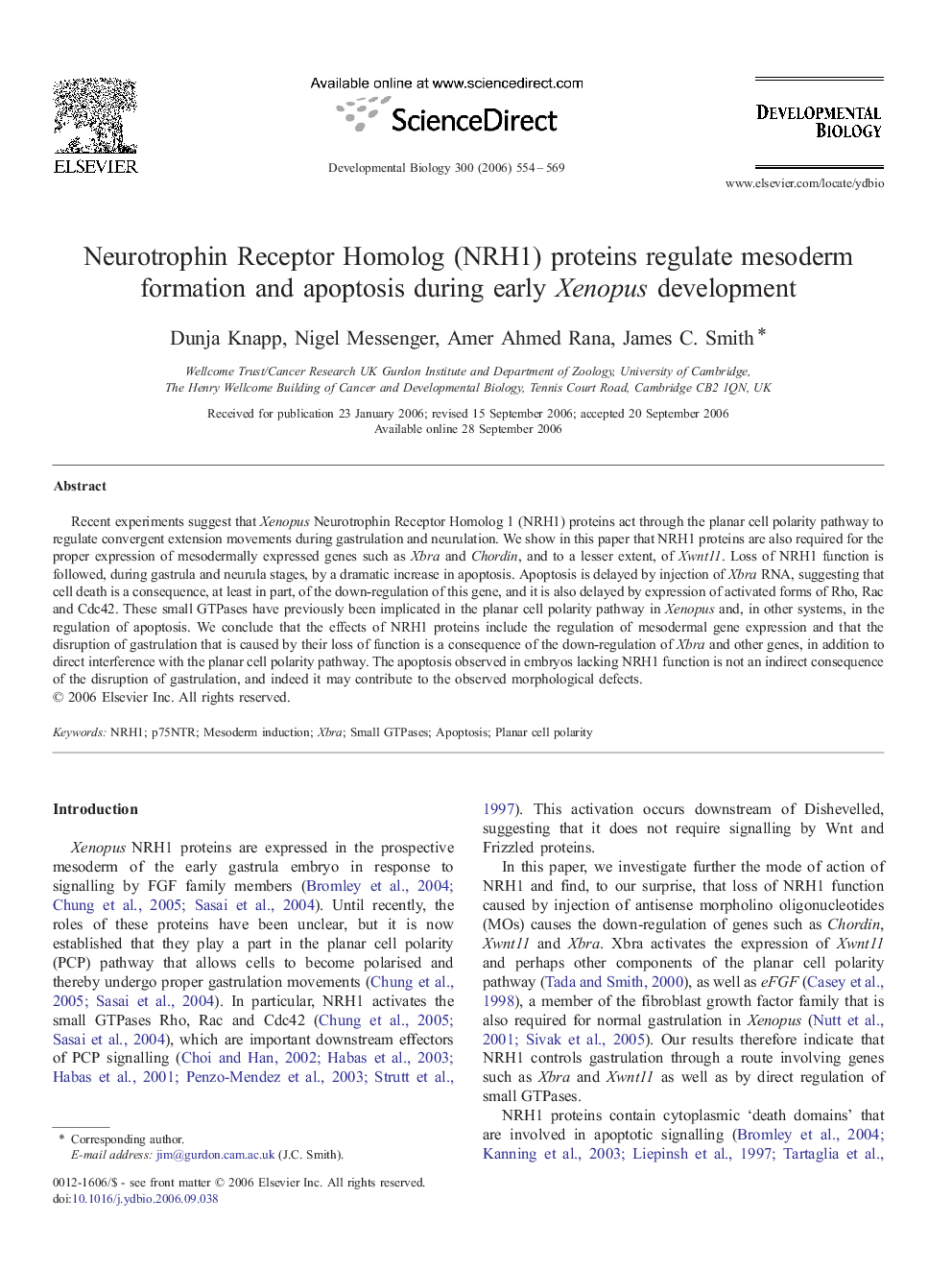| Article ID | Journal | Published Year | Pages | File Type |
|---|---|---|---|---|
| 2175558 | Developmental Biology | 2006 | 16 Pages |
Recent experiments suggest that Xenopus Neurotrophin Receptor Homolog 1 (NRH1) proteins act through the planar cell polarity pathway to regulate convergent extension movements during gastrulation and neurulation. We show in this paper that NRH1 proteins are also required for the proper expression of mesodermally expressed genes such as Xbra and Chordin, and to a lesser extent, of Xwnt11. Loss of NRH1 function is followed, during gastrula and neurula stages, by a dramatic increase in apoptosis. Apoptosis is delayed by injection of Xbra RNA, suggesting that cell death is a consequence, at least in part, of the down-regulation of this gene, and it is also delayed by expression of activated forms of Rho, Rac and Cdc42. These small GTPases have previously been implicated in the planar cell polarity pathway in Xenopus and, in other systems, in the regulation of apoptosis. We conclude that the effects of NRH1 proteins include the regulation of mesodermal gene expression and that the disruption of gastrulation that is caused by their loss of function is a consequence of the down-regulation of Xbra and other genes, in addition to direct interference with the planar cell polarity pathway. The apoptosis observed in embryos lacking NRH1 function is not an indirect consequence of the disruption of gastrulation, and indeed it may contribute to the observed morphological defects.
